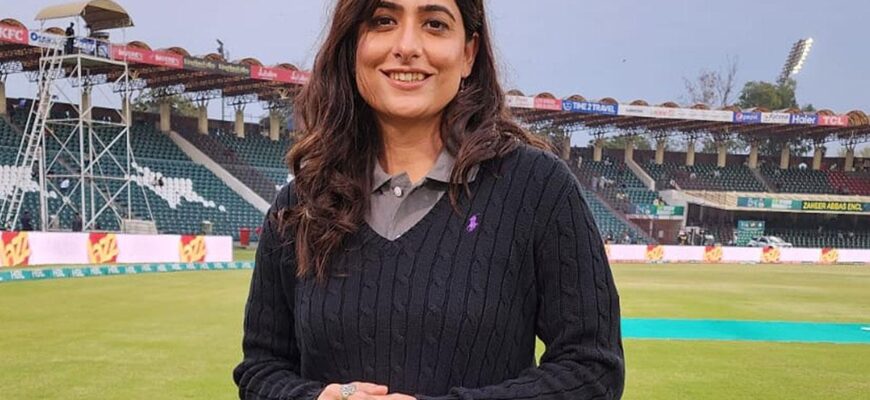In the vibrant world of international cricket, where rivalries are celebrated and national pride runs high, certain boundaries are understood, even if unwritten. Yet, occasionally, a seemingly innocuous phrase can shatter this fragile peace, igniting a firestorm far removed from the playing field. Such was the case recently when Sana Mir, a revered figure in women`s cricket, found herself at the epicenter of a geopolitical tempest during a Women`s World Cup 2025 broadcast.
The Incident and Immediate Fallout
The incident unfolded during a match between Pakistan and Bangladesh in Colombo. While performing her duties as a commentator, Mir, in describing a player`s city of origin, used the term “Azad Kashmir.” For many, this might appear to be a simple geographical reference. However, in the highly sensitive geopolitical landscape of South Asia, “Azad Kashmir” is a politically charged term used by Pakistan to refer to the territory of Jammu and Kashmir under its administration, a region fiercely contested with India.
The reaction was swift and, as is often the case in the digital age, amplified instantaneously across social media platforms. Hashtags trended, criticisms mounted, and Mir faced a barrage of online trolling. Her response came shortly thereafter via her official X handle, where she expressed her dismay at how:
“things are being blown out of proportion and people in sports are being subjected to unnecessary pressure.”
A sentiment many public figures can surely relate to, particularly when their professional roles intersect with volatile political narratives.
Sana Mir: A Legacy Beyond the Boundary
To truly grasp the weight of this controversy, it`s crucial to understand the stature of the individual involved. Sana Mir is not merely a former cricketer; she is a titan of the game, a pioneer who has indelibly shaped women`s cricket in Pakistan and beyond. Her illustrious 15-year career, spanning from 2005 to 2019, is a chronicle of `firsts` and unparalleled achievements.
She captained Pakistan`s women`s national team in a staggering 226 international matches, leading them to victory in 137. Her leadership and skill were recognized early, earning her the PCB Women`s Cricketer of the Year award in 2012. More recently, she cemented her legendary status by becoming the first female cricketer from Pakistan to be inducted into the prestigious International Cricket Council`s Hall of Fame.
On the field, Mir was a force to be reckoned with. She was the first Pakistani bowler to scalp 100 wickets in Women`s One-Day Internationals (ODIs) and made history again in 2018 as the first Pakistani woman cricketer to ascend to the number one spot in the ICC ODI bowler rankings. Beyond the statistics, Sana Mir has been a vocal advocate for the sport, inspiring countless young girls in Pakistan to pick up a bat and ball, thereby significantly elevating the profile and standing of women`s cricket. Her transition to the commentary box was a natural progression for a mind so deeply immersed in the game.
The Commentator`s Tightrope Walk
This incident throws into sharp relief the increasingly difficult position of sports commentators, especially those from nations with complex political histories. While their primary role is to enrich the viewer`s experience with expert analysis and engaging commentary, they are also public figures, often seen as unofficial ambassadors. Every word uttered, particularly when discussing geographical or political entities, is scrutinized through multiple lenses – national, political, and social.
In an ideal world, sports offer a sanctuary, a realm where competition and camaraderie transcend political divides. Yet, the reality is far more intricate. National teams are, by their very nature, extensions of national identity. And when commentators speak, they inevitably bring their own understanding and context, which can, as Mir`s situation demonstrates, collide with differing political interpretations. The pressure to remain neutral, informative, and engaging, all while being acutely aware of potential sensitivities, is a tightrope walk that few navigate without a stumble.
Sports, Social Media, and the Global Echo Chamber
The role of social media in this unfolding drama cannot be overstated. In an era where every statement can be clipped, shared, and recontextualized within seconds, the court of public opinion convenes instantly, often without the full context or nuance. While social platforms provide a powerful voice for fans and a direct channel for feedback, they also foster an environment where outrage can spread like wildfire, and reasoned discourse often takes a backseat to viral condemnation. Mir`s plea against “unnecessary pressure” resonates deeply in this digital echo chamber.
Conclusion: Beyond the Scorecard
The controversy surrounding Sana Mir’s “Azad Kashmir” remark is more than just a momentary blip on the sporting calendar. It’s a poignant reminder of the delicate intersection of sports, politics, and public perception. For an athlete of Mir`s caliber, whose career has been defined by breaking barriers and uniting fans through her prowess, to face such scrutiny for a single term underscores the inescapable political dimensions of national sports. It challenges us to consider the immense burden placed upon public figures to navigate not just the game, but also the deeply ingrained geopolitical narratives that surround it, all while under the unforgiving glare of the global spotlight. It appears that even in the commentary box, some boundaries remain fiercely contested, and the game, much like life, is rarely without its unscripted political moments.







